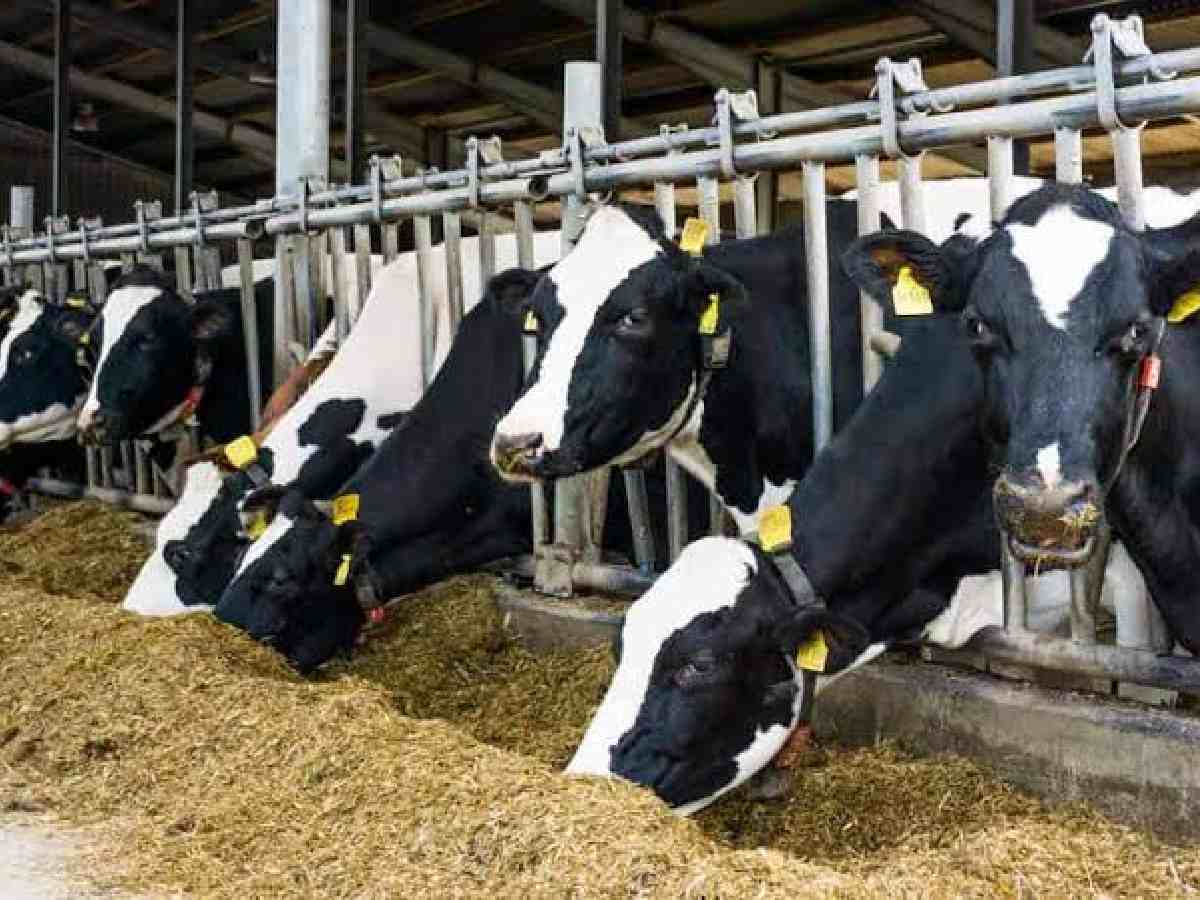
The Delhi Pollution Control Committee (DPCC) has instructed cow shelters and dairy farms in the capital to obtain pollution control consent within 15 days, warning of strict legal action for non-compliance.
In a public notice issued on Sunday, the DPCC directed all gaushalas and dairy farms with 15 or more cattle, as well as all dairies operating in Delhi’s dairy colonies, to apply for mandatory consent under the Water (Prevention and Control of Pollution) Act, 1974, and the Air (Prevention and Control of Pollution) Act, 1981.
The directive, issued in compliance with recent court orders, mandates adherence within 15 days from the notice date, failing which legal action will be initiated.
This notice is in line with the “Guidelines for Environmental Management of Dairy Farms and Gaushalas,” issued by the Central Pollution Control Board (CPCB) following the National Green Tribunal’s (NGT) order on May 20, 2020.
Under these guidelines, dairy farms are classified as “Orange” category and gaushalas as “Green” category based on pollution control norms. The aim is to address environmental issues, including water and air pollution caused by waste discharge and improper management practices.
The notice also complies with the Delhi High Court’s ruling in the Sunayana Sibal vs. GNCTD case, which emphasised that all dairy establishments registered with the Municipal Corporation of Delhi (MCD) must follow environmental regulations, irrespective of the number of cattle.
The DPCC stated that failure to comply with these requirements will lead to strict action under applicable environmental laws. It also urged dairy farms and gaushalas to apply for consent online via the Delhi Pollution Control Board portal to avoid penalties.
Meanwhile, the Centre’s panel on Delhi-NCR air quality has released a revised action plan to combat winter pollution, urging states to adopt stricter measures during periods of severe air quality and requiring schools to shift to hybrid learning during such conditions.
Winter in Delhi, spanning November to January, often sees prolonged episodes of poor air quality due to unfavourable weather conditions. During this period, the city enforces restrictions under the Graded Response Action Plan (GRAP), which classifies air quality into four stages: Stage I (Poor: AQI 201–300), Stage II (Very Poor: AQI 301–400), Stage III (Severe: AQI 401–450), and Stage IV (Severe Plus: AQI above 450).
As per the revised GRAP, inter-state buses from NCR states, except for electric vehicles, CNG, and BS-VI diesel buses, will not be allowed to enter Delhi under Stage II, a restriction that previously applied only under Stage III.
Resident welfare associations (RWAs) have been instructed to provide electric heaters for staff involved in sanitation, gardening, and other services, including security personnel, to prevent the burning of biomass or solid waste during winters.
Persons with disabilities will be exempt from restrictions on BS-III petrol and BS-IV diesel cars in Delhi and NCR districts like Gurugram, Faridabad, Ghaziabad, and Gautam Budh Nagar under Stage III.
The Delhi government has been directed to ban diesel medium goods vehicles (MGVs) with BS-IV or older standards, except those carrying essential goods, under Stage III. Similarly, non-essential diesel light commercial vehicles (LCVs) with BS-IV or older standards registered outside Delhi will also be barred from entering the city under Stage III. Previously, these restrictions applied only to BS-III vehicles.
Also Read: 2.6 lakh vehicles fined more than Rs 260 crore over pollution in Delhi
Additionally, schools and colleges in Delhi, Gurugram, Faridabad, Ghaziabad, and Gautam Budh Nagar must shift classes up to Class V to hybrid mode under Stage III, allowing students and parents the choice of online learning.
If the AQI exceeds 450 (Stage IV), schools in Delhi and NCR districts will be required to conduct hybrid classes for students in Classes VI to IX and XI.
State governments in Delhi and NCR have also been directed to stagger working hours for public offices and municipal bodies under Stage III. The Centre may also consider staggered timings for central government offices in the region.
(With inputs from PTI)
Delhi hosted what organisers describe as the world’s first player auction in golf, launching ‘72…
An elderly woman recalls how her six-year-old granddaughter lay bleeding after a speeding car hit…
Municipal Corporation of Delhi plans a unified policy enabling RWAs to adopt and maintain parks…
A 17-year-old boy allegedly died by suicide after jumping before a moving train at Uttam…
Delhi High Court grants bail to 26-year-old Thar driver accused of mowing down two in…
Two Rohini men arrested for fatally stabbing one person and injuring another during a robbery…